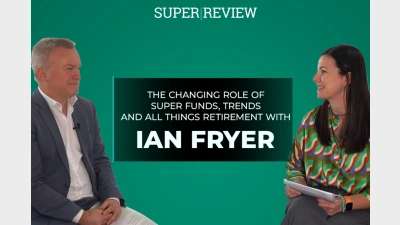PYS reforms show the need for better member comms



As is traversed in this month's issue of Super Review, superannuation funds are racing to solve the puzzle of member engagement and many are losing. Nowhere is the problem starker, however, than in the recent roll-out of the Protecting Your Super (PYS) reforms.
Funds were given the responsibility of contacting members of inactive accounts informing them that they were going to lose their group cover come 1 July and, put simply, many just couldn’t get in touch with those members.
While there are some reasonable causes that not everyone could be contacted – people change address and update emails, after all – in a lot of cases, members simply don’t open or engage with communications from their funds.
When the consequence is that people may unwittingly be left uninsured, the problem of member engagement becomes a whole lot more serious than whether funds have a competitive advantage in that area.
Indeed, it wouldn’t be surprising if legal actions stem from the loss of group cover; many in the industry, from both the insurer and super fund sides, have expressed concerns here.
At least some consumers who have been left out-of-pocket for costs and/or lost income that they thought was covered by their insurance inside super cover will look for compensation, and it’s easy to imagine the allure of the courts and even class actions to desperate individuals.
Here, a question of liability arises. Who is ultimately responsible for the lost cover? It’s unlikely it’s the Government; they’re well within their rights to legislate on this issue. Insurers are doubtful it’ll be them; after all, their relationship is with the super fund, who in turn has a duty to the member. So, that leaves the super funds.
It was their responsibility to ensure that members were aware they were losing their cover, just as it was up to them to provide the cover in the first place. It’s very feasible then, that a judge may take that view.
Some funds partnered up with both each other and insurers to try and respond to this problem. The checkmycover campaign from AIA Australia and several funds, for example, called on people to click through to a website to check their insurance cover. The Association of Superannuation Funds of Australia (ASFA) and the Financial Services Council (FSC) ran a joint campaign across TV, digital and social media to encourage members of the public to check on their super, while other insurers such as TAL worked hard with funds to roll out effective communications to relevant members.
Such public campaigns shouldn’t be necessary, however. Funds should have strong enough relationships with their members that they can rely on them opening the communications they send out, or even checking a dashboard frequently enough to be aware of their insurance cover.
The fact they didn’t, and that there now may be members of the public unwittingly without life insurance as a result, is an indictment on the superannuation industry.
Recommended for you
In this Super Review Product Spotlight episode, host Maja Garaca Djurdjevic speaks with Ian Fryer, general manager at Chant West, to discuss the latest developments in superannuation.
In this new Super Review Product Spotlight episode, host Maja Garaca Djurdjevic is joined by Ian Fryer, the general manager at Chant West. Together, they explore Chant West's enduring reputation in the industry and share insights on the imminent changes in the super landscape.
While the last two years have been challenging for the superannuation industry, there is more to come in 2022 and super funds will need to rise up to the challenge.
With 20/20 hindsight, the disengagement which occurred with the introduction of the MySuper regime was a mistake which now needs to be urgently corrected.










It goes way beyond super fund communication and member engagement. This is a financial literacy issue. Our government is responsible for the fact that people don't have the education to know this stuff is important. Every school student and immigrant should be given the basics on super and insurance and how much it matters.